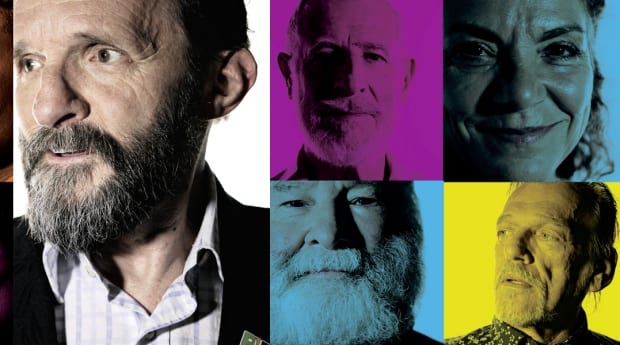More than 30 years ago, Kevin Hatt was told he was going to die. But he’s still here, and he’s still advocating for people with HIV/AIDS.
A noted activist, Hatt is the chair of the AIDS Committee of Ottawa and will be among the speakers at the World AIDS Day ceremony at Ottawa City Hall on Dec 1, 2015. The event begins at 9:30am with a red ribbon flag raising and the launch of the local chapter of the Red Scarf Project, an HIV/AIDS awareness campaign.
Afterwards, people will gather at the Councillor’s Lounge to hear diverse speakers talk about how they’ve been affected by HIV/AIDS. Hatt tells us more in this edited interview.
Daily Xtra: You were among the more powerful speakers in ACOXXX sharing your experience of living with HIV. What was it like when you were first diagnosed?
I was diagnosed in 1984 and at that point it was a virtual death sentence. My doctor told me to go home. I had about six months to get my papers in order. People were being diagnosed so late that they didn’t live long after the diagnosis, so it was pretty well a sure thing that you were going to die quite soon.
What made the difference for you that you were able to survive?
I’m not sure and I don’t know if even today I’m sure. Luck of the draw? I don’t know. I often wondered why I’ve survived and so many friends have died.
How would you describe ACO’s early days?
I joined it in 1997 and I’d say it was tumultuous. There were tumultuous times as well as there were very good times. No matter how much difficulty the agency was in, it was supported by the dire need of the community and the strength of the cause kept the [ACO] going.
Charlie Sheen’s recent announcement that he’s HIV positive has resulted in sex shaming, particularly because of his past involvement with sex workers. What can we do to combat the stigmatization of people living with HIV?
For those who are able to come out of the HIV closet, I equate it with coming out of the gay closet. Misconceptions held all the power until people finally met somebody [who was gay]. I do realize that there are a lot of people who cannot disclose [their HIV status], but there are a fair amount who can. I’m lucky that I’m in the position where I’m able to disclose. I don’t have children or a wife or family that might disown me if they ever found out.
Is that still prevalent, that a person who discloses their HIV status can lose their family?
Oh, yes. Look at how it’s being criminalized in the courts. It institutionalizes [stigma] by criminalizing [HIV status].
What are you going to talk about at the World AIDS Day event at Ottawa City Hall?
I’m not sure. I’m kind of toying with a few ideas. I would like the audience to really understand what impact HIV has had on our community and the world. Unfortunately, I think I will have to touch on some of the disgraceful behaviour at the beginning of the epidemic to highlight how far we’ve come.
How bad were things at the beginning?
Oh, real bad. The doctors didn’t care. The health department didn’t care. The church didn’t care and the politicians didn’t care. No one cared. Do you know what was the most disheartening thing? When our community needed support the most, everyone turned their back and shunned us. That’s the reason why ACO got started. That’s the reason why AIDS committees [got started] all across the country. We had to step up and care for our own. Bury our dead. We were just experimenting with newly-acquired gay rights when all of a sudden our enemies had a medical reason to snatch all those away from us and that’s where you really saw the GLBT community coalesce and push for our rights and demand a seat at the table.
What would you like people to do to mark World AIDS Day?
Take a moment and reflect where we’ve been, where we want to go and what part personally you can play in that. To honour our legacy as well as look to the future and hope that mankind would act the way it should’ve acted 30 years ago. If the crisis would’ve started hitting the children of senators and politicians it would’ve been a whole different thing, but it hit the gay community and the sex trade workers and those were both disposable members of the community. No one cared about one less prostitute or one less homosexual.
Anything you’d like to add?
I’m really pleased that ACO has survived its tumultuous times and become the strong organization it is today.
World AIDS Day
Ottawa City Hall, 110 Laurier Ave W, Ottawa
Dec 1, 2015, 9:30am–12pm
http://aco-cso.ca/


 Why you can trust Xtra
Why you can trust Xtra


